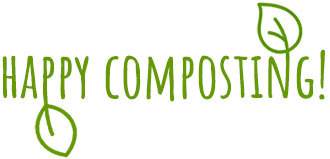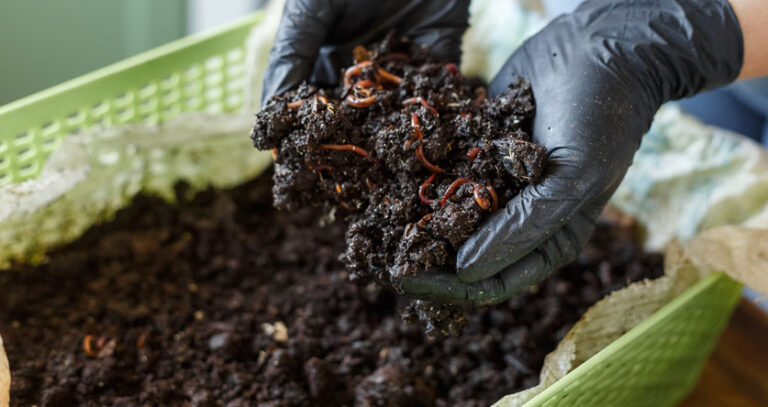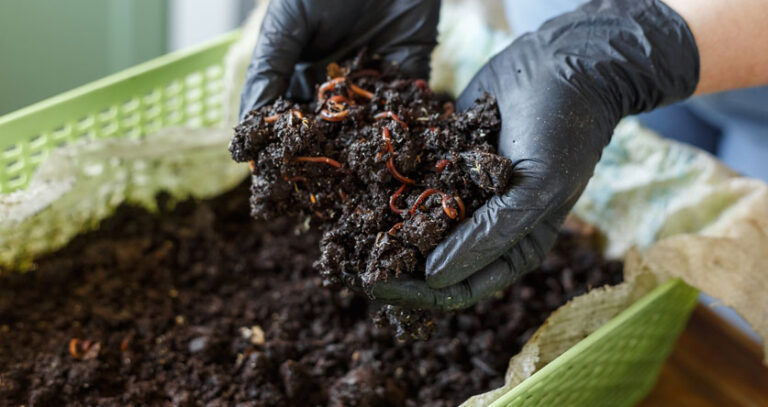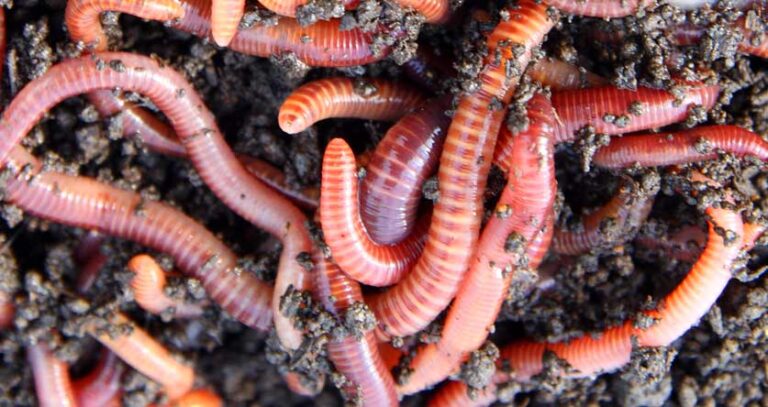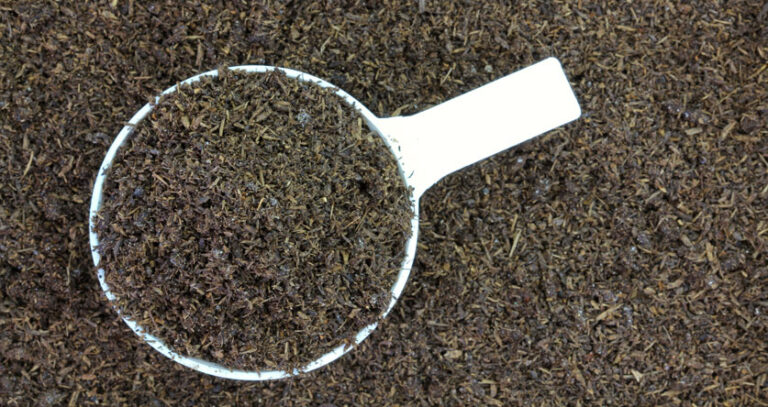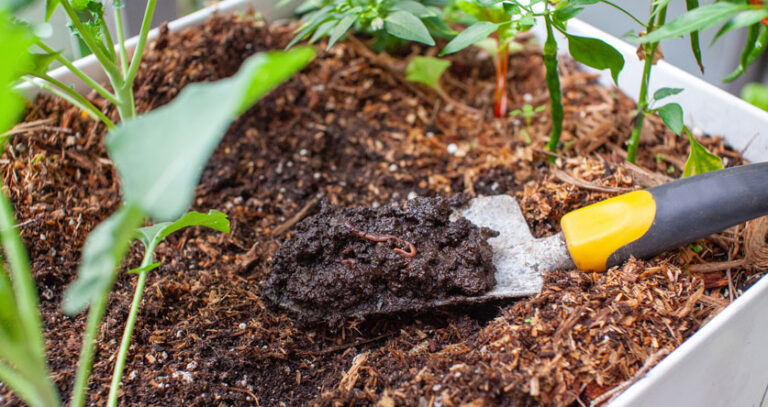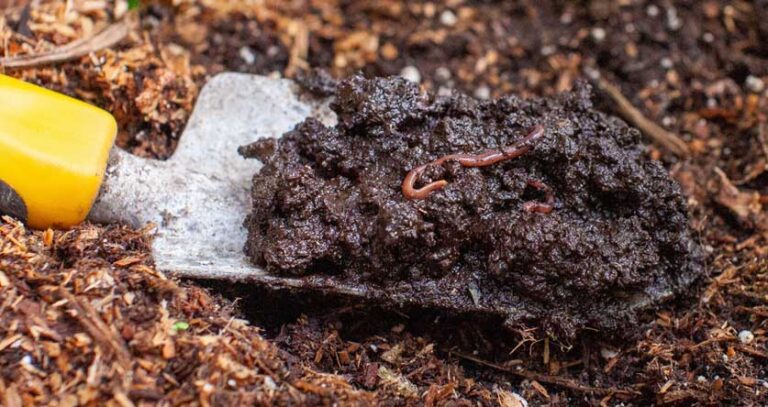Can You Use Worm Castings And Fertilizer Together? (Answered!)
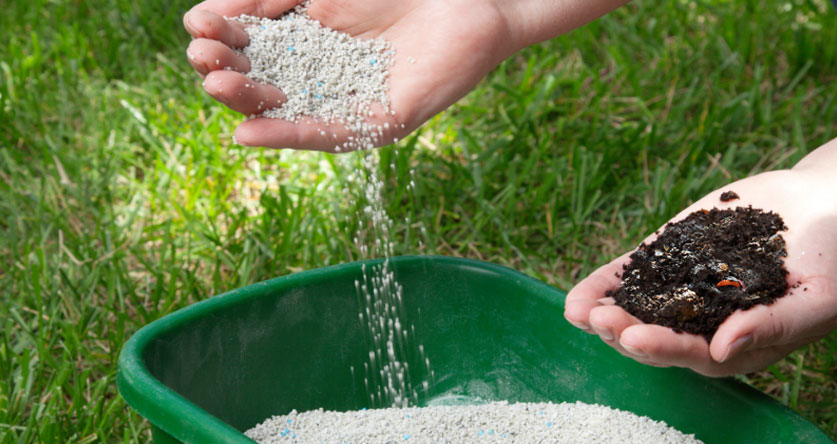
There are so many different soil amendments and plant foods on the market today. It’s challenging to tell which ones you actually need.
And if you choose multiple products, it’s not easy to tell which ones you can use together!
Fertilizer is important, particularly if you’re growing plants in pots or containers. Worm castings are another popular soil amendment.
But if you are already fertilizing your plants, should you use worm castings too? Can these two products be used together?
Can You Use Worm Castings And Fertilizer Together?
Worm castings and fertilizer can and should be used together. However, one is not a substitute for the other. Fertilizer gives plants the nutrients they require to grow, flower, and fruit. Worm castings, on the other hand, improve soil health, indirectly benefiting plant growth.
Your plants will grow better if you also use worm castings. This is the case whether you use organic fertilizer, like compost, manure, liquid seaweed, or inorganic, industrial fertilizer,
Because worm castings do not contain very high levels of nitrogen, you do not need to worry about your plants getting too much “N.” This means using worm castings and fertilizer together will not lead to nutrient burn. (At least not from the worm castings).
It’s a great idea to start both a compost heap and a worm farm. You’ll quickly see the benefits in your garden!
Are Worm Castings Fertilizer?
While worm castings (also called “worm compost” or “vermicompost”) generally fall under the umbrella of organic fertilizers, they are not technically the same thing as a fertilizer.
Fertilizer refers to any organic or inorganic substance added to soil to increase plant growth and productivity. In this sense, worm castings can be considered a fertilizer because they do improve plant growth.
However, there are some key differences between worm castings and fertilizer. Worm castings do things that fertilizer can’t, like improve soil aeration and drainage and prevent soil crusting and erosion.
Vermicompost also does a considerable amount to improve soil life! They add beneficial microbes and fungi to the soil. Something that inorganic fertilizer won’t do.
Worm castings are, therefore, more than just fertilizer. But does this mean that you can use worm castings to replace the use of regular fertilizer?
Can I Use Worm Castings Instead Of Fertilizer?
Worm castings have many of the same benefits as fertilizer (and even a few additional ones). So you might wonder if you can use worm castings instead of fertilizer.
This, however, is not the case. It is not recommended to use worm castings instead of fertilizer. Worm castings do not contain a high proportion of everything that plants need to grow.
Vermicompost is still a fantastic soil amendment and should be used as a complement to fertilizer. However, even though castings have a wide range of nutrients, including the essential NPK, they are not present in large amounts.
You still need to use fertilizer if you use worm castings. This will ensure that all your plants’ nutritional needs are met.
But be sure to measure which nutrients your plants actually need! Don’t just apply a high-dose complete fertilizer since the plants will only take up the nutrients it needs. The others will wash away into subsoil water sources and can be a potential pollution problem.
The easiest way to do this is to test your soil using an NPK tester kit like this. (Amazon)
Are Worm Castings A Complete Fertilizer?
Traditional fertilizer products have an NPK ratio that tells you how much nitrogen, phosphorus, and potassium they contain. These three nutrients are vital for all plants.
In theory, vermicompost is a complete fertilizer because it contains all elements required to promote plant growth, including the macronutrients (N, P, and K).
Worm castings also contain a wide range of beneficial microbes that promote plant and soil health. Plus, a variety of micronutrients that are necessary for plant health.
However, worm castings cannot function as or replace a complete fertilizer for certain types of plants. This is primarily because of the high concentrations of salts, which can restrict plant growth. Also, vermicompost has a pH of around 7 – 8 or higher. This makes it unsuitable for acid-loving (ericaceous) plants.
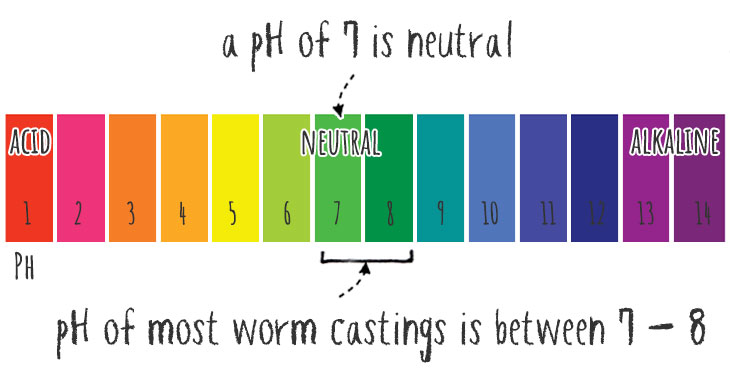
The best solution is to mix castings, fertilizer, and other soil amendments like compost or potting soil if you’re planting in pots. Like this, the plants get the advantages of vermicompost without the negative consequences of excessive salt concentrations or a high pH.
In fact, studies have shown that plants generally flourish when worm castings are used in conjunction with other soil amendments. They grow more vigorously than the same plant grown in pure worm castings.
Now that you know why it is necessary to use worm castings and fertilizer together let’s explain how to use worm castings appropriately in the garden or on houseplants…
How To Use Worm Castings As Fertilizer
Worm castings are super easy to use as a soil amendment, and they can be used in several ways:
- As a top dressing: Sprinkle worm castings on top of the soil surface or around the base of plants. Apply a layer that is between half an inch and an inch thick. Water the plants well so that all the goodness from the worm castings penetrates deep into the soil.
- As a side dressing: Dig little circular furrows around the bases of plants and fill them with worm castings. Add a shallow layer of soil to cover the worm castings, and then water the plants thoroughly.
- To give seedlings the best start: Add worm castings to your seed starter or potting soil mixture. They can make up around a third of the germination mix (the other two-thirds should be coco coir and vermiculite or perlite).
- As a soil amendment to prepare beds for planting: Add a 2- or 3-inch-thick layer of worm castings to garden beds and use a rake or a spade to fold them into the soil. Water the soil well and then plant seeds or seedlings into it.
Remember… Depending on the type of plant or crop, you can additionally use a straight or mixed fertilizer (containing 1 or 2 of the nutrients the plant most requires).
Worm Castings Liquid Fertilizer
Ever heard of worm tea? Well, it’s made using worm castings! Here’s how to make some nutritious worm tea for your garden:
To turn worm castings into liquid fertilizer, combine 1 cup of worm castings with 1 gallon of water in a bucket. Stir it thoroughly, then leave it in a shady spot for about a week.
After a week, the solids in the bucket will have settled to the bottom. Then, use the liquid to feed your plants.
Can You Over-Fertilize With Worm Castings?
It’s well established that over-fertilizing plants is bad for their health. If you give plants too much fertilizer, they cannot absorb all the minerals and nutrients.
The extra nutrients that plants do not absorb build up in the soil as mineral salts. These draw moisture out of plants’ roots, causing the roots to burn. This is known as fertilizer burn.
This begs the question – can using too much worm castings as fertilizer negatively impact plants?
The wonderful thing about worm castings is that you cannot use too much. In addition, because worm castings do not contain high levels of nitrogen, phosphorus, and potassium, they will not burn plants.
As long as you do not use too much fertilizer, you can add as much vermicompost to the soil as you like!
Happy days 🙂
